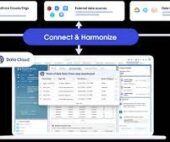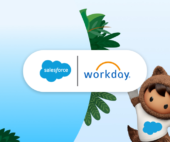Computing currently accounts for up to 3 percent of global power consumption, and Salesforce believes that AI could triple this figure. Lobbying for AI Rules on Environemental Impact.
To address these concerns, Salesforce is initiating lobbying efforts to establish new regulations mandating emissions disclosure and efficiency standards for artificial intelligence.
This announcement was made on Monday as part of Salesforce’s new “Sustainable AI Policy Priorities.” The company has previously taken stances on AI ethics and equity, a trend also seen among other major tech firms like Amazon, Google, and Microsoft.
The move comes amidst rising apprehension about the energy-intensive nature of training and operating AI algorithms. Data centers already consume 2-3 percent of annual global power, a figure projected to triple by 2030 due to AI’s accelerating demand, according to Boston Consulting Group. This prospect has motivated tech giants like Amazon, Google, and Microsoft to explore alternative, non-fossil fuel energy sources such as nuclear and geothermal.
Lobbying for AI Rules on Environemental Impact
Salesforce has outlined six policy priorities aimed at supporting “sustainable AI” through regulations and incentives, categorized into two areas:
- Measuring and managing environmental impacts:
- Mandate AI emissions disclosure for all providers of general-purpose AI models.
- Establish standard metrics for reporting energy efficiency, carbon footprints, and water usage associated with data centers.
- Include environmental impact as a risk factor in broader assessments of AI systems.
- Set efficiency standards for high-risk AI systems, requiring specific hardware and reliance on low-carbon or clean energy grids.
- Accelerating climate innovation with AI:
- Enhance climate modeling, data analysis, and predictions by promoting open-source environmental data and forecast databases.
- Encourage public-private partnerships to ensure AI-enabled services are accessible across communities, regardless of resources.
- Foster AI-driven innovation through grants and tax incentives supporting environmental applications.
Salesforce has already begun disclosing energy and environmental metrics related to its AI development activities. The company prioritizes the use of energy-efficient hardware and operates in data centers powered by lower-carbon sources, in collaboration with Google’s cloud services.
Moreover, Salesforce, like other tech giants, supports organizations and startups developing AI applications with climate benefits. It recently announced support for five new nonprofits focused on climate initiatives: Climate Collective Foundation, Good360, Groundswell, Ocean Risk and Resilience Action Alliance, and WattTime.













